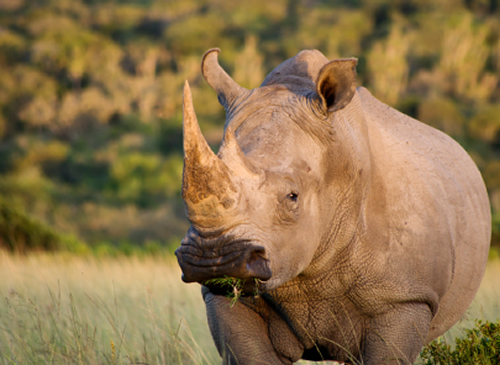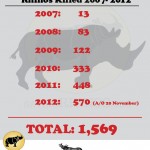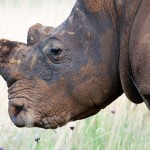
A Memorandum of Understanding (MoU) between the governments of South Africa and Vietnam aimed at reducing the flow of illicit wildlife — especially rhino horns — has been signed in Hanoi.
Edna Molewa, Minister for the South African Department of Water and Environmental Affairs and Cao Duc Phat, Minister of Agriculture and Rural Development, Vietnam, inked the MoU at a signing ceremony held on December 10th, 2012.
Particularly aimed at curbing the scourge in rhino poaching, the MOU seeks to promote cooperation in law enforcement, compliance with the Convention on International Trade in Endangered Species of Wild Fauna and Flora (CITES) and other relevant legislation and Conventions on the basis of equality and mutual benefit.
Both countries are expected to participate in “collaborative projects” and each will “appoint a coordinator to implement the MoU”, according to South Africa’s Department of Environmental Affairs.
The wildlife trade monitoring network TRAFFIC identified Vietnam as the primary destination for illegal rhino horn, where it “is in demand as a supposed ‘miracle medicine’, despite a lack of supporting medical evidence”. Traffickers also managed to export at least 657 rhino horns legally during 2003 — 2010, thanks to some of South Africa’s safari operators who facilitated bogus trophy hunts with Vietnamese nationals.
Vietnamese hunters were the driving force behind rapidly escalating prices for rhino hunts from 2004 onwards. Hunting by these Asian nationals has been termed “pseudohunting” by many, as the purpose is not to demonstrate the skills of a hunter and acquire trophies for personal display, but rather to acquire a horn for commercial trade purposes.
Responding in April 2012, the South African Department of Environmental Affairs amended the requirements for issuing trophy hunting permits, in hopes of tightening the loopholes used by “pseudo-hunters” and their South African accomplices to launder rhino horn for the illegal market.
Image: iStockphoto.com



